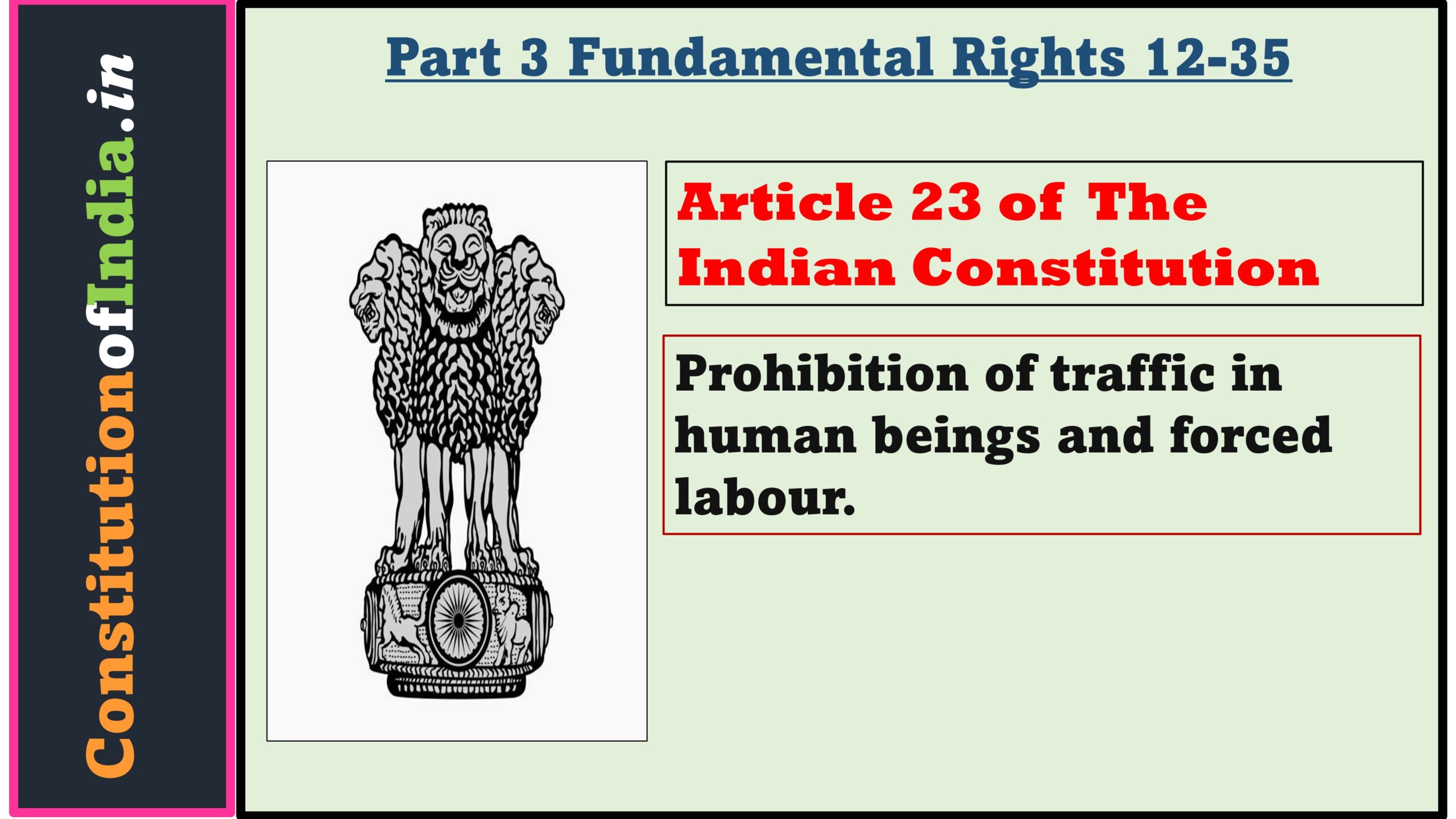Article 23 of Indian Constitution: Prohibition of traffic in human beings and forced labour.

Article 23 Prohibition of traffic in human beings and forced labour – Constitution of India
(1) Traffic in human beings and begar and other similar forms of forced labour are prohibited and any contravention of this provision shall be an offence punishable in accordance with law.
(2) Nothing in this article shall prevent the State from imposing compulsory service for public purposes, and in imposing such service the State shall not make any discrimination on grounds only of religion, race, caste or class or any of them.
Summary of Article 23 of Indian Constitution
| Provision | Description |
|---|---|
| 23(1) | People cannot be forced to work against their will, and human trafficking is not allowed. If someone breaks this rule, they will be punished by the law. |
| 23(2) | The government can make people do some work for the public good, but they can’t choose people based on their religion, race, caste, or class. This means everyone should have an equal chance to do this work. |
FAQ on Article 23 of Indian Constitution
What is Article 23 of the Indian Constitution?
Article 23 is a part of the Indian Constitution that deals with the prohibition of human trafficking and forced labor.
What does Article 23(1) prohibit?
Article 23(1) prohibits human trafficking, forced labor, and a practice called “begar,” which involves forced labor without pay. These activities are illegal in India.
What happens if someone violates Article 23(1)?
If someone is found guilty of violating Article 23(1), they can be punished under the law.
Does Article 23 allow any exceptions?
Yes, Article 23(2) allows the government to make people do certain work for public purposes, but it must be done without discrimination based on religion, race, caste, or class.
What is the purpose of Article 23(2)?
Article 23(2) allows the government to require citizens to provide service for the greater good, such as during emergencies or public projects, while ensuring that everyone is treated equally and fairly.
Can the government force people to work against their will under Article 23(2)?
No, Article 23(2) does allow for compulsory service, but it must be done without infringing on an individual’s free will. It should be for public benefit and without discrimination.
How does Article 23 protect the rights of citizens?
Article 23 protects the rights of citizens by ensuring that they cannot be subjected to forced labor or human trafficking and by guaranteeing that any compulsory service for public purposes is carried out fairly and without discrimination.
Is Article 23 applicable to all citizens of India?
Yes, Article 23 applies to all citizens of India and is aimed at protecting their fundamental rights.
\